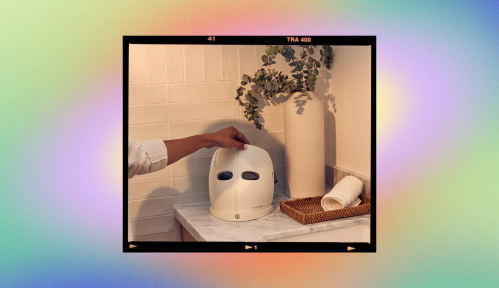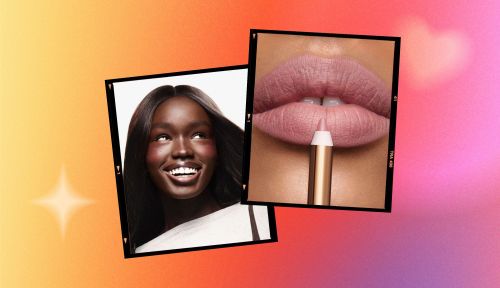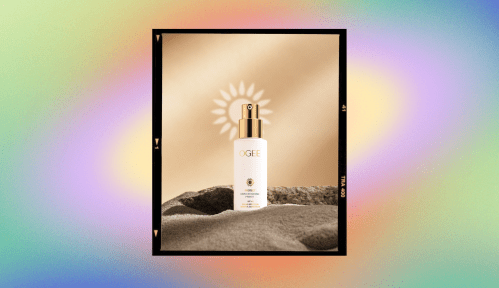Our editors independently select these products. Making a purchase through our links may earn Well+Good a commission
Wait—Could Your Hair Supplement Be Causing Breakouts? Here’s What Dermatologists Want You To Know
Dermatologists get to the bottom of social media rumors around acne breakouts from biotin hair supplements.

Whether you’re longing for hair growth, an increase in thickness, or to start the regrowth process after hair loss, hair supplements are often the go-to choice for kickstarting your hair rebirth. While the hair supplement of your choice may provide you with welcomed progress, you might begin noticing something you didn’t ask for at all: acne breakouts.
Experts in This Article
There have been rumors all over social media that hair supplements can cause you to break out, so we chatted with experts to figure out what exactly the deal is.
What is biotin?
Also known as vitamin B7, biotin is one of the B complex vitamins that help the body convert food into energy. It’s found in a variety of foods such as broccoli, nuts, fish, and eggs. “Biotin is an important and necessary ingredient for maintaining healthy skin, hair, nails, eyes, and the nervous system,” says Jaimie DeRosa, MD, a double board-certified facial plastic surgeon. Biotin has the reputation of being linked to breakouts and increasing the amount of skin protein (aka keratin) we produce, which is why you notice your hair and nails growing when taking a supplement that includes biotin. An excess amount of keratin leads to clogged pores, blackheads, and acne.
When it comes to biotin, it’s all about the dosage. Daniel Yadegar, MD, the co-founder of supplements brand Wellbel, says that hair supplements with high doses of biotin (2,500-10,000+ mcg) are more likely than others to cause breakouts. “Biotin, at high doses, competes with the vitamin B5 for absorption and can leave you with low vitamin B5 levels,” he adds. Low levels of B5, in turn, can cause breakouts. (The recommended dosage of biotin for anyone 19 years old and older is 30 mcg.)
Here’s where your gut comes into play. When you take a supplement that includes biotin, the amount of biotin in the gut may be higher than the amount of other B vitamins such as vitamin B5 – known as pantothenic acid, which can help prevent acne. And again, low B5 in your body can lead to breakouts. Because of this, Dr. DeRosa says that although there is some truth in saying that biotin is responsible for acne, that belief is not completely accurate. “It’s just when we knock off the normal balance within the skin—be it from over-drying, increasing cell turnover without shedding, or exfoliation—that issues such as acne breakouts occur,” she adds.
Other ingredients that lead to breakouts
Dr. DeRosa says that hair supplements are generally safe to take without any appreciable consequences or side effects. But a handful of other ingredients commonly found in hair supplements may lead to acne breakouts.
Sugar is commonly found in hair supplements, simply because of how many brands are creating gummy and candy forms. Excess sugar can trigger acne breakouts because it may contribute to your insulin levels spiking; this also is dependent on your diet and daily sugar intake as well. When your insulin increases, it also increases the production of oils in the skin, leading to your follicles and pores clogging. Board-certified dermatologist Yoram Harth, MD, says that most gummy and candy “supplements” contain a high amount of sugar, and a minimal amount of essential vitamins and collagen. Therefore, he says, it’s better not to use them.
Vegetable oil can trigger the inflammatory hormones that make acne worse. Many processed foods contain vegetable oil and unfortunately, so do a lot of supplements. When you’re taking a gummy, sugary hair supplement that includes sugar, vegetable oil, and other not-so-healthy ingredients, you may notice more and more breakouts as you ingest the supplement.
High doses of vitamin B6 can lead to acne that’s monomorphic, meaning that in appearance, your acne is similar in size and shape on your skin. Vitamin B6 is important; it supports healthy hair growth because of its role in protein metabolism. It also ensures that hair cells have access to the amino acids needed to create the proteins in your hair. Unfortunately, high doses of vitamin B6 can make your existing acne worse and create new breakouts. Many of us get a good amount of this vitamin daily because it’s found in foods such as turkey, fish, bananas, spinach, and avocado. When you get more than 1.3 milligrams to 1.7 milligrams per day of vitamin B6, it’s likely you’ll notice more breakouts.
Vitamin B12 may also cause breakouts. As an active ingredient in many hair supplements, the excessive supplement ingestion and the vitamin B12 you receive from food can cause an increase in acne. Vitamin B12 may alter your skin’s microbiome, meaning the good bacteria living on the surface of your skin. This bacteria keep your skin healthy, and when there is a lack of it, acne-causing bacteria tends to thrive.
The bottom line
Any supplement you take introduces the possibility of unwanted breakouts, which typically resolve quickly once you stop taking the supplement. But not all supplements cause acne; a well-formulated and well-chosen one can stimulate hair growth without causing breakouts. Ahead, a few doctor-recommended options.
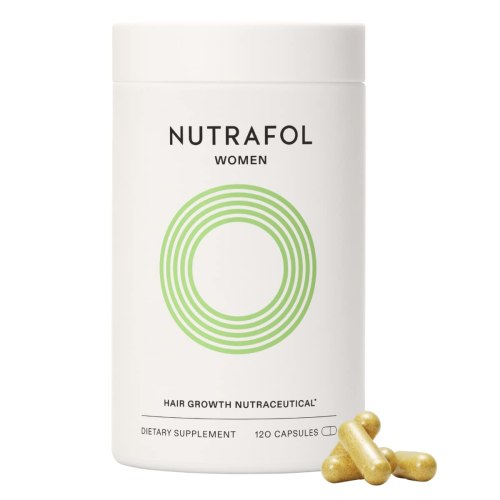
Nutrafol Hair Growth — $88.00
Dr. DeRosa recommends Nutrafol’s supplements. “They offer daily hair supplements formulated for women, men, pre-and-post-menopausal women, and those who are post-partum. Each is designed for people experiencing compromised hair health and contains essential vitamins and proprietary Nutrafol blend designed to keep hair thick and healthy.”
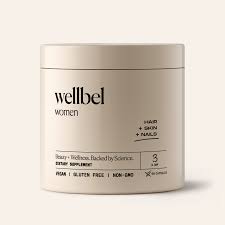
Wellbel Hair+Skin+Nail Supplement — $68.00
Dr. Yadegar shares that Wellbel is doctor backed and doctor formulated. “The products are vegan, non-gmo, gluten free and have no artificial colors or harmful fillers. Wellbel avoids the unwanted issues of breakouts many people experience with other products due to biotin overload.”

Vegamour GRO Biotin Gummies — $36.00
Dr.DeRosa recommends the brand Vegamour. Their GRO Biotin Gummies feature a proprietary combination of vitamins and minerals that support healthy hair. The gummies are 100% vegan, gluten-free, gelatin-free and contain no artificial flavors.
Sign up for the Well+Good SHOP Newsletter
Get exclusive deals on wellness, beauty, fitness, and food products that have been hand-picked by our editors.
Got it, you've been added to our email list.

